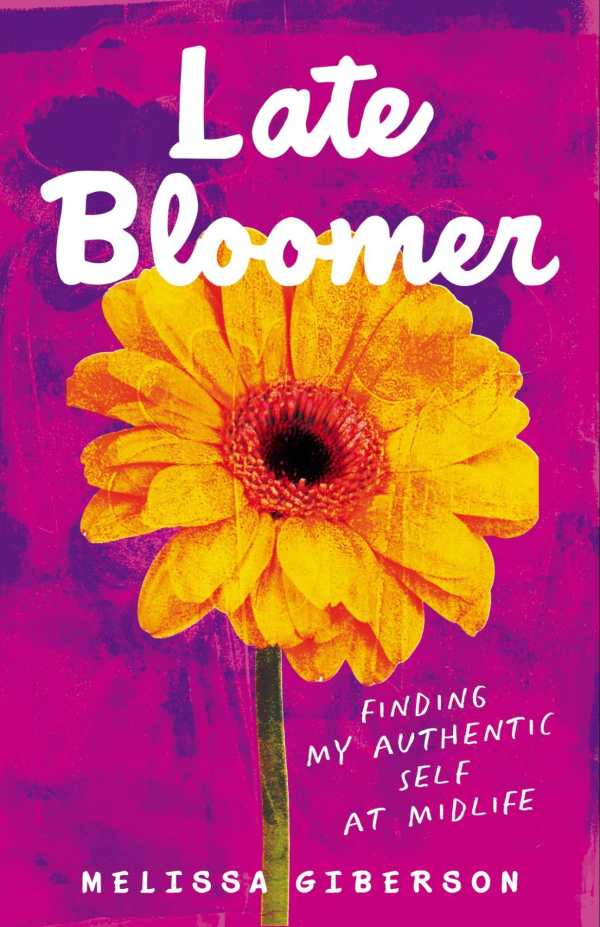Late Bloomer
Finding My Authentic Self at Midlife
Late Bloomer is a heartfelt memoir about leaving a marriage to find healing and wholeness in coming out.
Melissa Giberson’s heartfelt memoir Late Bloomer is about the midlife coming-out of a risk-averse married mother of two.
When she met Raia, a patient at her occupational therapy practice, Giberson had been in a stable but lackluster marriage for eighteen years. Her children were twelve and ten; she was obsessing over preparations for her daughter’s bat mitzvah. Though Giberson believed that intimacy with anyone other than her husband was wrong, Raia’s first kiss had broken through the trance she had been in and awakened intense new feelings within her. Thus began a brief affair that led to ecstasy, confusion, and major personal changes as she grappled with her sexual orientation.
Set in New Jersey, New York City, and Provincetown, Giberson’s account begins with a flashback to 1986, showing her already questioning her identity. Later, she relates struggling to keep her faltering marriage alive yet feeling envious of women who were out. Confused, she searched for answers online, in therapy, and in consultations with rabbis. She found solace and welcome in the LGBTQ+ community. Talks with trusted friends surprised her—several people had already known that she was a lesbian.
Giberson’s emotional turmoil is palpable, compounded by the need for secrecy as she met and explored intimacy with several women. These relationships are treated as stepping stones to self-understanding. The book’s scenes of physical intimacy cover her initial hesitancy and grow toward satisfaction; Giberson’s coverage couples a sense of passion with tenderness and respect. These scenes are juxtaposed to those which represent the book’s greatest conflict—Giberson’s fear of hurting her children. Her fierce need to protect them is explained via memories of the pain she felt at her own parents’ divorce. However, in emphasizing the conflict between Giberson’s memories and her parenting, the narrative sometimes stalls, its progress lost in excessive ruminations. Still, the idea that it’s important to deal with the past when making decisions about the future is clear.
The book is filled with intimate introspective moments; Giberson considers her flaws as well as her strengths. But this consistent, pointed focus on Giberson’s inner world leads to the occasional flattening of those around her. The exceptions are Giberson’s husband, whose positive and negative traits are shown in the context of their marriage, and Vivian, the woman who becomes pivotal in Giberson’s life-changing decisions. The latter relationship is developed in gentle terms, leading into the book’s satisfying conclusion.
Late Bloomer is a candid memoir about leaving a marriage to find healing and wholeness in coming out.
Reviewed by
Kristine Morris
Disclosure: This article is not an endorsement, but a review. The publisher of this book provided free copies of the book and paid a small fee to have their book reviewed by a professional reviewer. Foreword Reviews and Clarion Reviews make no guarantee that the publisher will receive a positive review. Foreword Magazine, Inc. is disclosing this in accordance with the Federal Trade Commission’s 16 CFR, Part 255.

